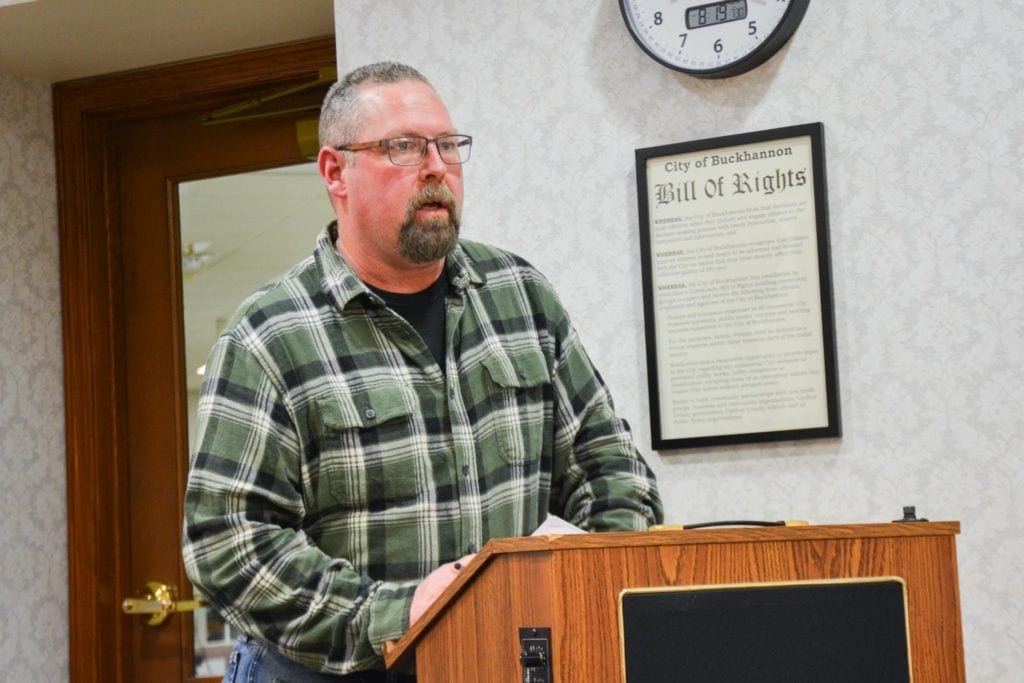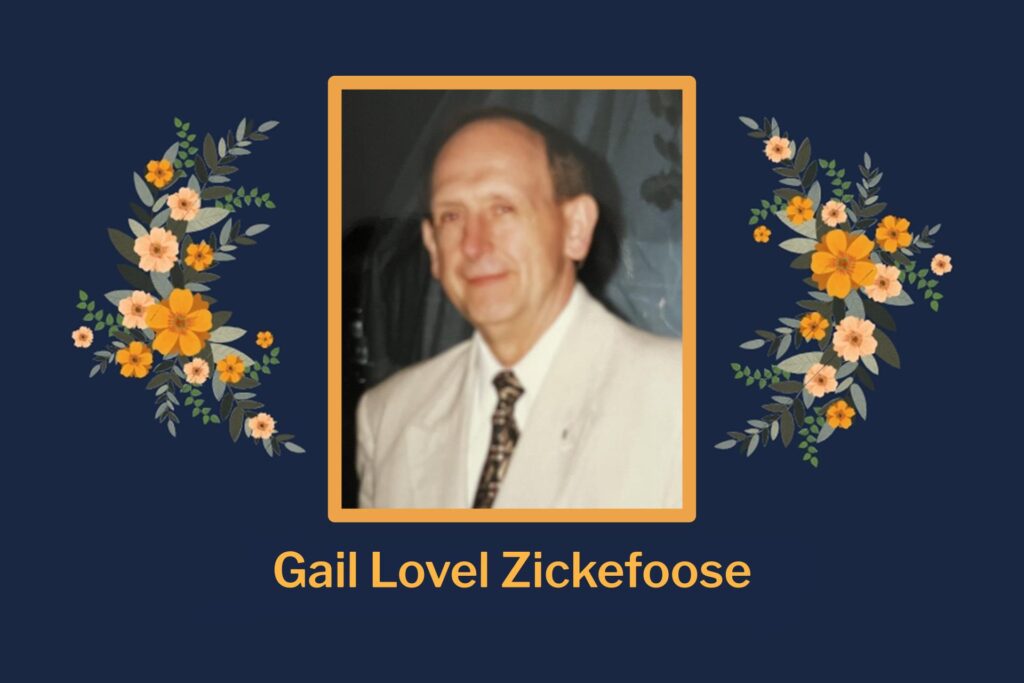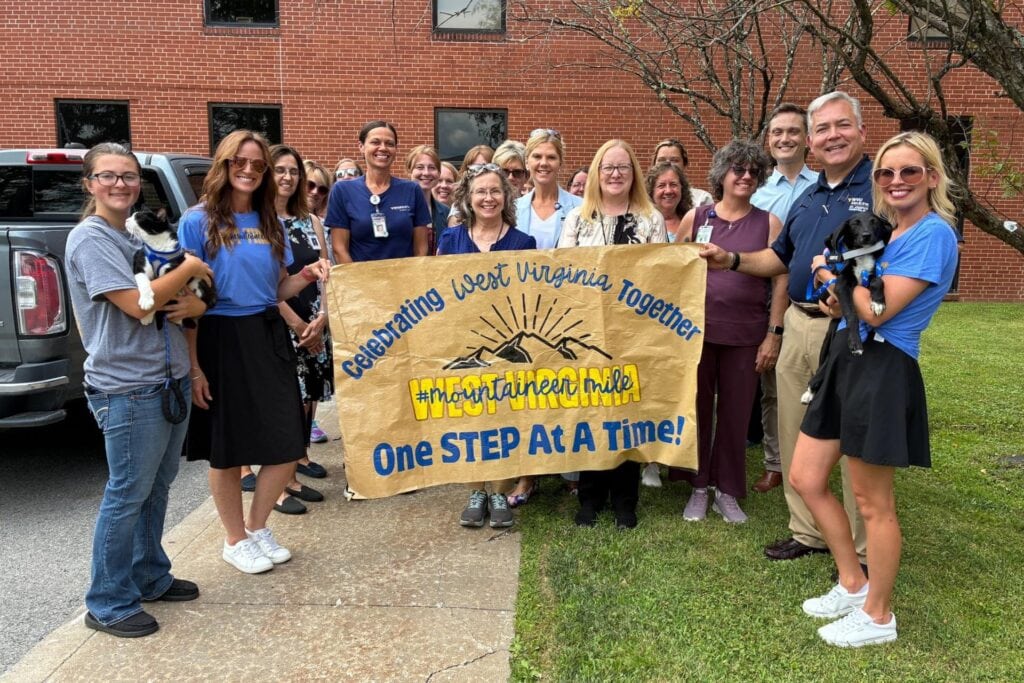BUCKHANNON – Buckhannon is in the midst of revamping its recycling program – and city officials are asking residents to be patient while they do so.
Complaints surrounding what can – and mostly what can’t – be recycled have surfaced on social media lately and at the two most recent Buckhannon City Council meetings, Feb. 20 and March 5.
At the Feb. 20 meeting, city councilwoman Pam Bucklew said she’d received several complaints from residents regarding drop-off recycling at Crossroads Recycling Center in the Walmart Crossroads Shopping Plaza.
“I’ve been getting a lot of complaints about drop-off and recycling,” Bucklew told City of Buckhannon Public Works Director Jerry Arnold. “What’s the answer to that? Why are we changing things?”
Arnold said the answer was complex.
“We cannot get materials accepted the way they used to be,” he said. “Partially, China has flooded the market with recyclables, so the mills became more stringent on us for contamination. We have to retool our program to meet those demands, and as the program was at Crossroads, of the materials that were accepted, probably somewhere between 70-80 percent of that material was getting landfilled because of the increased contamination levels.”
Among the items now not accepted at Crossroads Recycling Center are pizza boxes, pet food cans (which contain liners), office paper and slick inserts inside newspapers.
Arnold said the city is working to overhaul the program in an effort to prevent the materials that are dropped off at Crossroads from simply being sent to landfills.
“So, rather than people continue with trying to recycle for the right reasons, and [certain contaminated materials] getting landfilled, we posted someone out there to try to educate people a little more on what the markets are now, and we’re in the middle of retooling our program, and we will have information out as soon as we have the latest.”
“We just ask people to be patient and continue to recycle,” Arnold added.
So, what can and can’t be recycled at Crossroads Recycling Center and at the Mudlick Recycling Center at the city’s Waste Department headquarters on Mudlick Road? The following items are still acceptable at both locations: newspapers (without plastic ‘slick’ inserts); corrugated cardboard; aluminum and steel cans; No. 1 clear plastic soda and water bottles; and No. 2 plastic milk jugs.
Office paper, electronics and appliances are only being accepted at the Mudlick Recycling Center, located at 443 Mudlick Road.
Glass, cereal boxes, pizza boxes, waxed boxes, cast pie pans, pet food pans, scrap tin, car parts, magazine slicks, paper clips, foam cups, plastic wrap and laminated paper aren’t being accepted at either location, according to Arnold and the city’s current online guide to recycling.
At the Feb. 20 meeting, Mayor David McCauley noted that the city stopped accepting detergent containers years ago, but people still try to deposit them in the Crossroads bins.
Arnold said well-meaning recyclers who try to drop off the wrong kind of plastics will often end up contaminating an entire load.
“There was a comment made by someone to (city waste department head) Jeff Wamsley that, ‘plastics are plastics,’ and that’s not accurate for recycling,” Arnold said. “One of the things I would mention is that there is an awful lot of products that we could recycle if we had the storage facility to do so, but we have to pick what is the major contributor to our waste-stream for recycling.”
Arnold said some types of plastic could previously be mixed, but that’s no longer the case.
“A lot of the issues that we have with plastics and the textile end of things, a lot of it [transpired] from the trade issues we have with China,” he said. “They stopped accepting materials from the United States – that’s part of it. And then, the markets in the U.S. were flooded with materials so the mills can set more stringent contamination-level standards, and that’s really what’s hitting us right now.”
Bucklew asked if other cities were having similar troubles with recycling and if they city accepts glass.
“Some other cities are completely discontinuing their programs,” Arnold replied, “and one I know of did away with everything except for corrugated cardboard.”
McCauley said Crossroads and the Mudlick Recycling Center haven’t accepted glass for some years.
“However, I’m aware of people who use half a tank of gas to drive to Elkins to recycle glass, but you’re largely defeating the purpose of being green and sustainable and environmentally-savvy by burning the carbon fuel to drive your car over to drop off a bag of glass in a place where the market is extremely marginal,” the mayor said.
Arnold encouraged recyclers not to throw in the proverbial towel and for now, focus on reduction.
“Please be patient,” he said. “Don’t get discouraged, and say, ‘I’m just not going to do it anymore.’ We’re trying to do the best we can with the markets we have.”
Reduction is a key way to reduce waste, Arnold added.
“Callie (Cronin Sams, city information coordinator and grant writer) and I were talking about this the other day, and the most important message is, ‘reduction,’” he said. “We’ve pushed recycling for years, but right now, I would push reduction. Reduction is something you can control.”
Arnold suggested refraining from buying bottled water and using refillable containers when and where available.
“Instead of buying bottled water, drink the City of Buckhannon’s water – it’s won awards,” Arnold said. “Reusable water bottles are very affordable. We have fountains and hope to be getting some bottle fillers around the city for folks. You can use refillable detergent containers and fabric softeners.”
“There’s a lot of ways that you can look at reducing your waste as opposed to essentially having to deal with the problem after you’ve created it,” he added it.
One change that may be coming to Crossroads Recycling Center is set hours and supervision.
“It needs to be manned and to have set hours to prevent contamination,” Arnold said, noting security cameras haven’t been effective in preventing people from recycling materials that are no longer accepted.
McCauley said he’d like for the city to host an environmental summit later this spring or summer.
“We could segue beyond just recycling,” he said. “We pride ourselves as a community on being planet-friendly, and we’re not changing that philosophy but at the same time, some of these past practices, when you’re taking 70 percent of the stuff and putting it in the landfill anyway, it becomes a little disingenuous to those who are trying to do it the right way for them to think all this stuff is being recycled when a fraction of it is.”
Read more about the city’s current recycling policies here.












